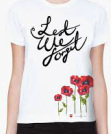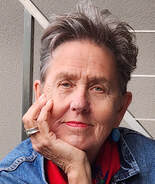“The rank stench of those bodies haunts me still / And I remember things I'd best forget” Siegfried Sassoon

You're sure to remember the wartime bravery and sacrifice of New Zealand servicemen and women if you’re lugging your groceries in a “Lest we forget” tote-bag ($15.00) while wearing an RSA t-shirt ($39.95) and scarf ($49.95), and texting on a mobile with an “iconic poppy” iPhone Cover ($25.00).
When something bad happens to you, or the people you care about, it’s impossible to forget - even if you want to. “The rank stench of those bodies haunts me still” wrote soldier and poet Siegfried Sassoon about his WWI experiences, “And I remember things I'd best forget”. Is our passion for ANZAC Day growing because the New Zealand veterans of WWI are no longer alive to carry the burden of unbearable memories on our behalf?
Or is it because ANZAC Day symbolises one of the few things we can agree on as a people – that wars are evil, and respect and gratitude is owed to those who fight them on our behalf? Nearly everything else which has aroused our emotions as a nation has also divided us: the fight for women’s suffrage, the 1951 waterside dispute, the 1981 Springbok Tour, Treaty of Waitangi settlements. And we hardly dare acknowledge the only wars which have been fought on New Zealand soil.
Perhaps it’s because in our increasingly secular society we are hungry for rituals which bring us together? We want more than the All Black pre-match haka. Dawn Parades fit the bill and have a certain sombre glamour as well – the dramatic half-light of early morning, silence, order, solemnity, a touch of pomp and strong, healthy young men and women in crisply-pressed military uniforms. Their quiet, rational orderliness, is of course the antithesis of war - and why they seem to glorify it. WWI, as described by Samuel Hynes in A War Imagined, was "Masses of men and materials, moving randomly through a dead ruined world towards no identifiable objective; … aimless violence and passive suffering … “.
Or has our love affair with ANZAC Day grown out of the RSA’s struggle to stay solvent and relevant in the 21st century? It’s quite apparent that it has enlisted an army of marketing and PR experts to rebrand itself and reposition ANZAC Day in the national psyche. The David Moger admits the RSA has had its challenges. “The charity had to move with the times to stay afloat” he says, “RSAs were going under … the old way of doing things within the club environment are not working.”
A year out from the centenary of Gallipoli, the RSA is looking pretty spiffy - belt buckles and cap badges buffed to a parade ground shine. It’s got a clever new logo which, depending on how it’s deployed, suggests a poppy, a war medal ribbon, a heart or a home. It’s got a smart website which describes the RSA as “A genuine kiwi connection at the heart of our communities” and “a great way to meet people, share stories, have a laugh, help out and get involved with your community”. The RSA’s got social media. It’s got blogs. It’s forged links with big sports events like the V8 Supercars Championship. It’s got tie-ins with businesses like the petrol company Z Energy – visit Z’s Facebook page, “like” it, and Z Energy will send a virtual ANZAC poppy on your behalf.
In “The Missing of the Somme” Geoff Dwyer describes the feeling which overcomes him on a visit to the French cemetery at Notre Dame de Lorette which has “20,000 named graves and an ossuary with 20,000 unknown dead”. It is he says, “overwhelming. The distance of a century is effaced. You stand aghast while the wind hurtles through your clothes, searing your ears until you find yourself almost vanishing: in the face of this wind, in this expanse of lifelessness, you cannot hold your own: you do not count. There is no room for the living. The wind, the cold, force you away.”
Imagine if feelings as powerful as these were evoked by every ANZAC Day service. Would we then accept the representations of violence which saturate our entertainment screens? Would we continue to accept that in New Zealand, ten children are murdered by a member of their family each year? Would we accept that domestic abuse is one of the leading causes of death and injury to women in New Zealand? Would we allow our government to send troops to war to appease an ally, or keep quiet about human-rights abuses rather than offend a trading partner?
I do not think we would. And I do not think we would need a t-shirt, tote bag or iPhone cover to help us value peace.
 RSS Feed
RSS Feed

